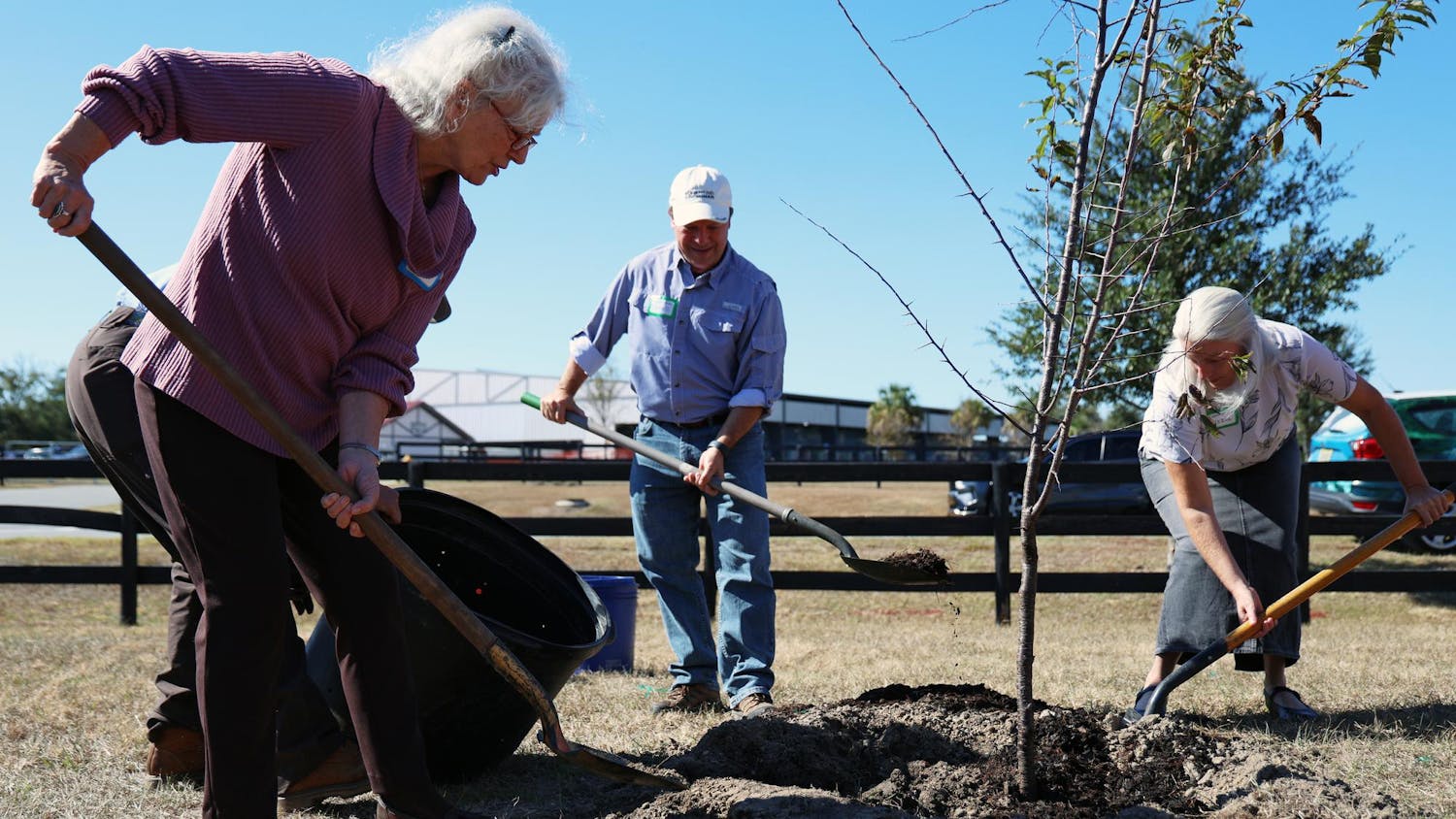
UF researcher shows cats and dogs working together to keep rodents away
Cats and dogs don’t always get along, but together, they have proven able to keep rodents away, according to a UF researcher.
Robert McCleery, a UF Institute of Food and Agricultural Sciences associate professor of wildlife ecology and conservation, worked with two researchers from Swaziland on a study that showed cats and dogs living together can prevent rodents from entering homes and storage buildings.
The study, published Feb. 3, was conducted in four agricultural villages in Swaziland, McCleery said. The behavioral patterns of the animals will remain the same no matter the location, he said.
Cats or dogs separately didn’t affect the rodent population as much as the two combined, he said. Both animals have different hunting techniques, which makes it difficult for the rats to survive.
“Cats hunt differently, they’re going to be ambush predators,” he said, adding that dogs are active in the day and chase animals instead of pouncing.
To test the rats’ level of fear, researchers used rat traps in Swaziland villages and measured if any of the food was taken away or not. If the food wasn’t eaten, then the rats were intimidated by the dogs and cats.
In rural areas, where pest rodents aren’t controlled, rats spread diseases and spoil food, he said. Farms are more affected since crops are stored in sheds, where rodents frequently visit.
“One of the reasons people have barn cats is to get rid of rodents,” McCleery said. “We’re just saying get a dog, too, simple as that.”
- Karen Patino
UF researchers continue testing immunotherapy treatment on malignant brain tumors
UF researchers are in the second phase of testing the effects of immunotherapy on patients with malignant brain tumors.
A team of about 30 researchers from UF worked with other universities in publishing a study in March 2015 showing that immunotherapy, where doctors treat patients’ existing cells in a lab to treat cancer, was successful on mice with glioblastoma brain tumors, said UF Health researcher Catherine Flores, the study’s lead author. In a smaller trial, researchers showed the treatment is also effective on humans with glioblastoma tumors, which are a highly malignant form of cancer.
Now, researchers are conducting more human trials at UF Health Shands Hospital, with possible pediatric tests in the future, Flores said.
There is currently no viable forms of treatment for patients with this type of tumor, she said.
“There is really no option for patients with a brain tumor, so it was important for me to try to develop a potential cure for these patients and these families,” Flores said.
To conduct the immunotherapy treatment, doctors took patients’ immune cells from their bodies, engineered them in a lab and transferred them back to the patients. This activates the patient’s immune system against the tumor, Flores said.
After the trial conducted on mice was successful, the initial human trial included 12 terminally ill patients, of which six survived, Flores said.
“It’s definitely promising,” she said. “In glioblastoma, there is a zero survival, so having potentially a saving treatment is life-changing to these patients.”
- Dominique Torres
UF council releases guidelines for Florida men to detect prostate cancer
A UF-led health advisory council released recommendations regarding the detection of prostate cancer that differ from federal guidelines.
The regulations, released in February, say men should be checked for prostate cancer more frequently and earlier than men in other states, said Thomas Stringer, the executive director of the Florida Prostate Cancer Advisory Council at the UF Prostate Disease Center. The guidelines take into account Florida’s population, since prostate cancer is more common with men in the state, especially with African-American and Latino men.
“(The guidelines) are intended to be a reliable resource for all Florida men at a time when prostate cancer screening is considered by some to be controversial,” Stringer said.
He said prostate cancer can be overdiagnosed and overtreated, which results in contradictory and confusing screening guidelines.
Cases of prostate cancer in Florida have increased for the fourth consecutive year, according to the American Cancer Society. Stringer said data showing that minority groups have higher instances of prostate cancer is inconclusive as to why that happens.
The Florida Prostate Cancer Advisory Council recommends that Florida men 50 years or older get early detection testing, Stringer said.
The council will continue its work in 2017 to provide education and information to Florida men on prostate cancer risk, he said. The council’s next goal is to develop statewide management guidelines for prostate cancer once diagnosis is made.
“It’s important for all men to consider this regardless of their race,” he said.
- Lindsey Robertson






